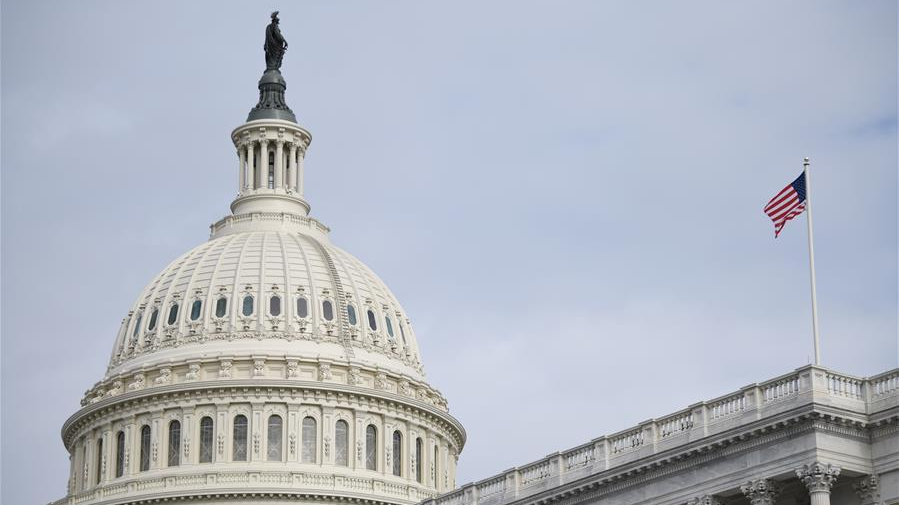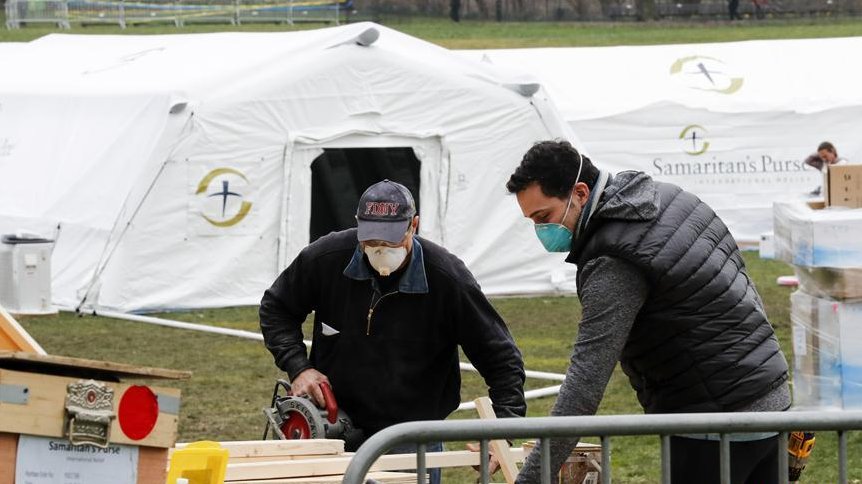
The Capitol Building in Washington D.C., the U.S., December 4, 2019. /Xinhua
The Capitol Building in Washington D.C., the U.S., December 4, 2019. /Xinhua
Editor's note: Hannan Hussain is a security analyst at the South Asia Centre of the London School of Economics, and an author. The article reflects the author's opinions, not necessarily the views of CGTN.
There was a reason why the Chinese government called upon the United States to take "concrete steps" in its pursuit for cooperation: Washington's smear campaign against Beijing's COVID-19 efforts remained active. The latest addition to that campaign is a classified U.S. intelligence report, shifting the blame of Washington's COVID-19 failures on to Beijing – a tried-and-tested strategy with no memory of success.
The report, disclosed by Bloomberg this week, alleges that "China concealed the extent of the coronavirus outbreak in its country," and blames Beijing for "under-reporting both total cases and deaths it's suffered from the disease."
There is no doubt that these allegations are a blatant attempt to discredit China's globally acclaimed containment efforts, backed by nationwide COVID-19 testing, big-data measures and optimum citizenry support.
There is more evidence to establish the Trump administration's own governance crisis in the United States, which has contributed to a rapid escalation in COVID-19 infections across the country – over 250 percent greater than China's overall tally.
Moreover, it is Washington – not Beijing – that deliberately rolled back U.S. health experts at the Centers for Disease Control and Prevention (CDC) office in the Chinese capital prior to the outbreak. The move – kept out of public eye for nearly two years – is a classic example of government-led suppression that undermined Sino-U.S. cooperation during and after the pandemic. Unsurprisingly, none of these facts are part of the intelligence report.
China's unwillingness to engage in a battle of words with the United States mirrors its top priority at the moment: To stand by the international community's COVID-19 fight. "We don't want to get into any meaningless argument with them," said Foreign Ministry spokesperson Hua Chunying on Thursday. "But in response to their endless, immoral slanders, I feel I have no choice but to take a few moments to clarify the truth once again."
The truth is that previous accusations of an "information cover-up" did not gain an ounce of traction for the Trump administration. Washington is now looking to redouble its insistence on the same allegations, by re-organizing them as part of an intelligence assessment. Even more striking is the fact that there is absolutely no data underpinning the accusations made towards Beijing in the report. What metrics, if any, have been used to determine China's allegedly "under-reported" COVID-19 count? There are no answers.
Bloomberg, which ran the report, cites three "unnamed U.S. officials" and insists that the actual content of the report still remains "secret" – all the while making the misleading case that "China's numbers are fake." Never has conjecture been so amply demonstrated.
Another questionable aspect of the disclosure is its timing. The report arrives at a time when several of Trump's aides are encouraging him to work with Beijing, only to denounce Chinese leadership in the aftermath of the report.
The Trump administration is also being criticized for its frivolous approach to United States' own COVID-19 count, after the president praised a six-digit death forecast as "a very good job." Many American states are also skeptical of a COVID-19 testing system being enforced in the country – an arrangement promised by the government.

A temporary hospital is under construction in Central Park in New York, U.S., March 30, 2020. /Xinhua
A temporary hospital is under construction in Central Park in New York, U.S., March 30, 2020. /Xinhua
By directing unsubstantiated criticism towards Beijing, the Trump administration is able to mask these governance gaps and deflect domestic criticism. More importantly, the administration is leveraging other "U.S. intelligence findings" to allege that China, the DPRK, Russia and Iran are hampering "U.S. and international efforts to limit the human and economic tolls from COVID-19."
Trump's failure to significantly break COVID-19 transmission chains in the United States, and salvage a governance crisis through trillion-dollar relief packages – is at the heart of these toxic speculations.
Interestingly, Bloomberg's coverage – which details U.S. intelligence assessments – states that "the outbreak began in China's Hubei province in late 2019, but the country has publicly reported only about 82,000 cases and 3,300 deaths… That compares to more than 189,000 cases and more than 4,000 deaths in the U.S., which has the largest publicly reported outbreak in the world."
The logic presented here is very misleading: The greater the number of cases, the greater the public disclosure. Based on this very logic, the United States appears to be under-reporting its cases by the thousands, given how President Trump has neglected his governors' calls for scaling up COVID-19 testing.
U.S. health experts are also on record arguing that a high count is tied to a number of reasons, including the widespread nature of the disease itself, and varied levels of COVID-19 testing. Nothing suggests a correlation between high infection counts and increased transparency.
It is against this backdrop that China's COVID-19 case count has stalled in the 82,000 range for three simple facts. First, it is the demonstrated effectiveness of the government's multi-pronged approach to COVID-19 containment. Second, Beijing does not believe in a statistical discrepancy between "public and actual numbers," as erroneously suggested by the report. Finally, China has made a significant contribution to global data transparency, by integrating asymptomatic cases into its national count – an integration that the Trump administration is yet to even contemplate.
Ultimately, attempts at discrediting China's open and transparent COVID-19 measures will continue to backfire, as Beijing delivers on its engagement with the world.
None of China's efforts against COVID-19 depend on Washington for validation.
(If you want to contribute and have specific expertise, please contact us at opinions@cgtn.com.)